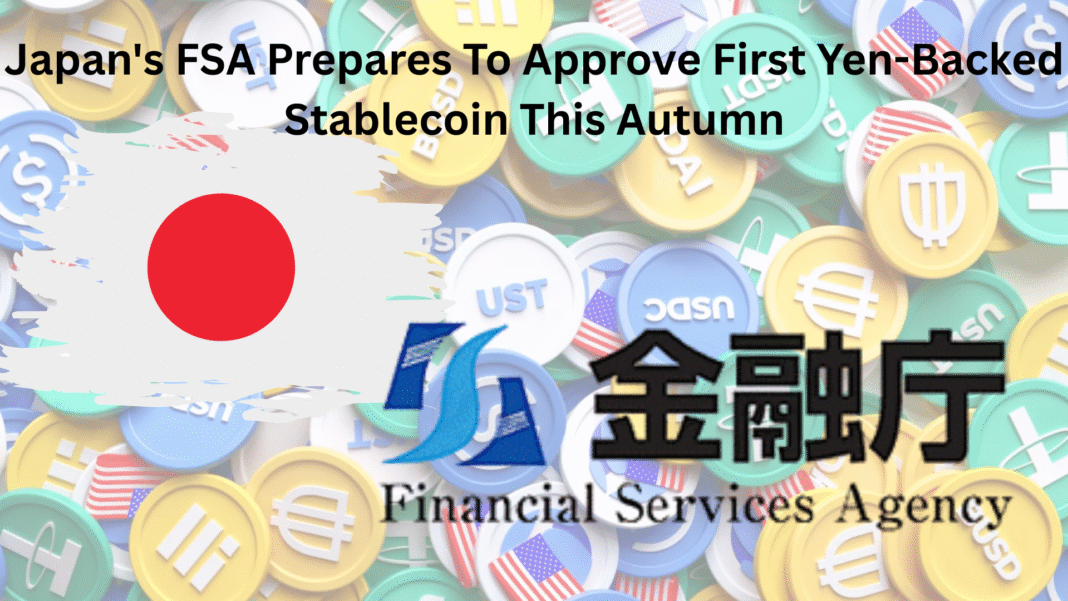Japan’s Financial Services Agency (FSA) is preparing to authorise the first stablecoin backed by the yen, with approval expected to come this autumn.
The move will allow fintech firm JPYC to launch a digital token pegged at 1 JPY = 1 yen, marking the first time a Japanese regulator approves a domestic fiat-linked digital currency.
JPYC to lead the rollout
Tokyo-based JPYC is set to register this month as a money transfer service provider. Once registered, the firm will lead the rollout of the stablecoin.
JPYC will maintain a fixed value by holding liquid assets such as bank deposits and Japanese government bonds. After customers apply for purchases, either as individuals or corporations, the tokens will be issued by bank transfer into digital wallets.
Part of a global trend
The launch comes as stablecoins continue to expand worldwide. The market, dominated by US dollar-pegged tokens like USDt and USDC, has grown to more than $286 billion.
Dollar-based stablecoins already circulate in Japan, but the JPYC initiative will be the first tied directly to the yen.
Also Read: Interactive Brokers Weighs Launching Customer Stablecoin Amid Crypto Regulatory Easing
Impact on Japan’s bond market
Okabe, a representative from the issuing company, said in a post on X(Twitter) that yen stablecoins could affect Japan’s bond market. He pointed out that in the US, top stablecoin issuers have become major buyers of Treasurys, using them as collateral.
He suggested a similar outcome may unfold in Japan, and if JPYC achieves wide adoption, the issuer could buy large amounts of Japanese government bonds.
Okabe also argued that countries slow to adopt stablecoins risk higher government bond interest rates, since they would miss a new source of institutional demand. He noted that monetary policy is becoming a key driver in the rush to design frameworks for stablecoin issuance.
Regional competition
Japan’s move comes as regulators in Asia increase their focus on digital currencies. Chinese officials have been monitoring stablecoin growth while testing Hong Kong as a hub for development.
Reports say regulators in Beijing have consulted industry experts to shape policies and ensure projects comply with strict rules on capital movement.
South Korea’s largest banks are also racing to build crypto and stablecoin products as lawmakers prepare broad new regulations. The rush shows how countries in the region want to stay competitive as digital finance accelerates.
Outside Asia, established firms are exploring ways to use stablecoins in existing businesses. Western Union has expressed interest in using them to speed up transfers, make currency conversions easier, and provide customers with an added store-of-value service.
This signals a growing acceptance of stablecoins in mainstream financial services. The approval of JPYC would place Japan among the first major economies to roll out a yen-backed stablecoin under clear regulation.
Also Read: Polymarket Plans to Launch a Stablecoin to Generate Yield on USDC Holdings


